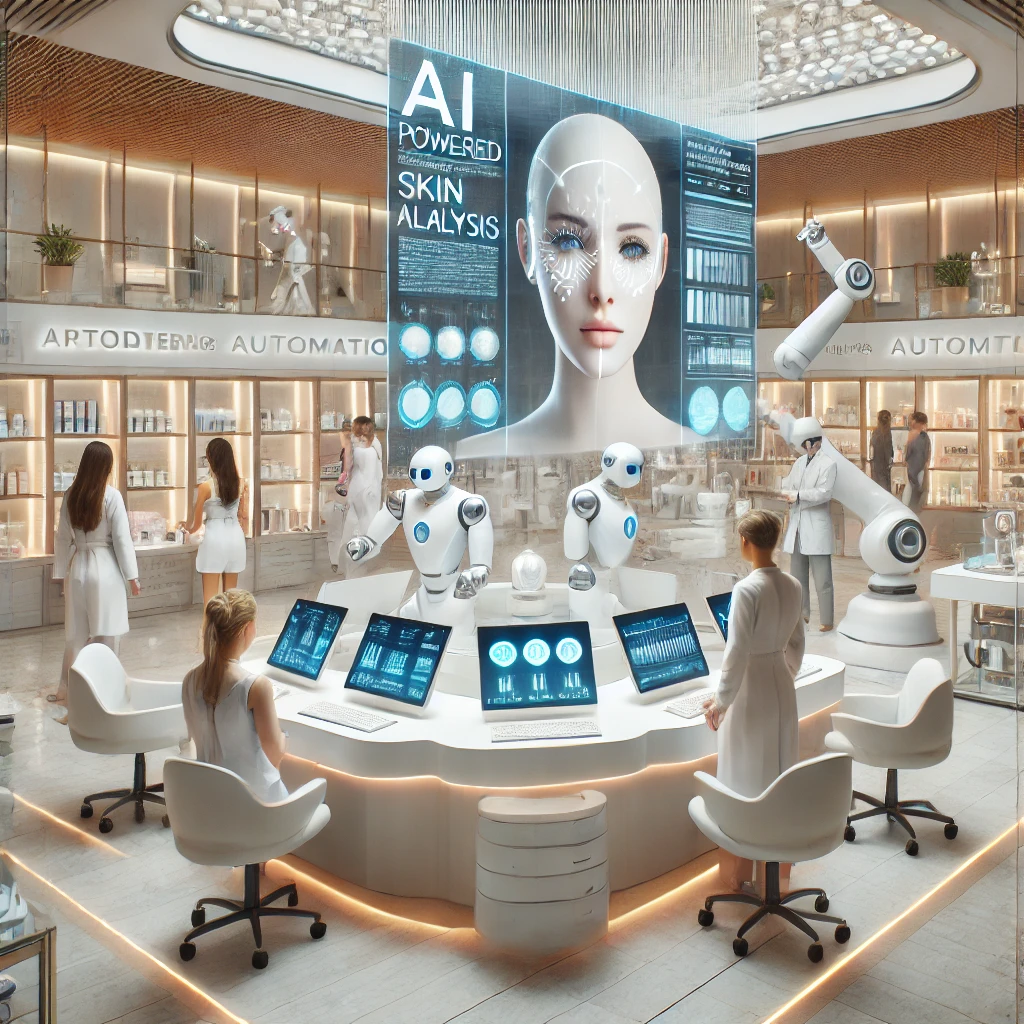Hello, I’m Doğan Seyfi Dağtaş, Doseer Founder. The beauty industry is undergoing a rapid transformation driven by technological advancements, with artificial intelligence (AI) leading the charge in skin analysis. Moving beyond the limitations of traditional methods, AI technologies are bringing scientific precision to this critical process. Doseer AI, a pioneering device in this field, is redefining skin analysis for beauty centers and clients alike. In this article, we’ll dive into the scientific foundations of AI in skin analysis, explore Doseer AI’s innovative features, and examine the value this technology adds to the beauty industry.
A Scientific Approach to Skin Analysis
Skin analysis is a cornerstone of the beauty industry. Historically, it relied on professionals’ visual assessments or basic testing tools. These methods often failed to capture the nuanced characteristics of the skin, such as subsurface pigmentation or precise pore conditions. Results could be subjective, leading to inconsistencies among professionals and challenges in creating tailored care plans for clients.
Artificial intelligence changes this landscape entirely. Doseer AI introduces a scientific approach to skin analysis, leveraging cutting-edge technology to deliver precise, data-driven insights. The device measures multiple skin parameters hydration levels, sebum production, pore size, pigmentation density, wrinkle depth, and skin elasticity in seconds. These metrics provide beauty professionals with an objective foundation for decision-making. Importantly, Doseer AI does not recommend treatments or products; it equips professionals with reliable data to inform their expertise. For instance, if the device detects elevated sebum production in a client’s skin, the professional can design a care protocol tailored to that specific need.
The Technical Edge of Doseer AI
Doseer AI’s capabilities stem from a seamless integration of artificial intelligence and advanced sensor technology. The device employs multispectral imaging to scan the skin, analyzing light across various wavelengths to reveal hidden features, such as subsurface pigmentation. Machine learning algorithms continuously refine the analysis, improving accuracy with each use. For example, while measuring a client’s hydration levels, Doseer AI simultaneously maps pore congestion or pigmentation distribution. These insights are stored on a cloud-based platform and presented to professionals as visualized reports, enabling transparent and professional service delivery.
Another standout feature is the device’s non-invasive, rapid analysis process. Unlike traditional methods that sometimes required chemical tests or invasive procedures, Doseer AI operates entirely contactlessly, ensuring client comfort. Analysis results are digitally archived, allowing professionals to compare current data with past records at each visit. For instance, a client can see a graphical representation of how their pigmentation has diminished over three months, providing a clear measure of care effectiveness.
Clients also benefit directly from this technology. Doseer AI’s reports are accessible in user-friendly formats via mobile devices. Clients can track visual changes in their skin, such as improved pore structure or reduced pigmentation, fostering greater engagement with their care routines. This transforms skin analysis into not just a service but a personalized experience.
Contributions to the Beauty Industry: Data-Driven Beauty
The impact of AI in skin analysis delivers transformative benefits to the beauty industry. First, it elevates service quality. The objective data provided by Doseer AI enables professionals to create more accurate care plans. For example, detecting sensitivity in a client’s skin allows the professional to adopt a gentler approach, enhancing outcomes. This boosts client satisfaction and reinforces the credibility of beauty centers.
Second, AI personalizes the client experience. Traditional methods often funneled clients into generic care routines. Doseer AI analyzes each client’s unique skin profile, enabling truly individualized services. When a client experiences care tailored to their skin’s elasticity or hydration needs, they feel the service is designed specifically for them, fostering loyalty.
Third, AI enhances operational efficiency. Doseer AI’s cloud platform centralizes client data, allowing professionals to easily review skin histories and optimize care processes. Digital reports reduce paper usage, offering an eco-friendly solution. Beauty centers can also leverage this data for marketing. For instance, anonymized success stories, such as a client’s improved skin metrics, can be shared on social media to showcase results.
A Client’s Perspective: Real Results
The true value of AI in skin analysis shines through client experiences. Consider a client who underwent a Doseer AI analysis and discovered significant pore congestion. Armed with this data, their beauty professional implemented a deep-cleansing and pore-tightening protocol. Three months later, the client’s follow-up report showed measurable improvements in pore structure, visualized through clear graphs. This not only delivered aesthetic results but also built trust in the care process. Doseer AI empowers such stories, setting a new standard in the beauty industry.
Industry data supports this technology’s impact. Studies project the global AI-driven skin analysis market to exceed $1 billion by 2025, reflecting growing demand for personalized, data-driven services. Doseer AI, as a leader in this space, helps beauty centers meet this demand with confidence.
The Future: New Horizons for AI
The potential of AI in skin analysis is just beginning to unfold. Future iterations of Doseer AI could predict long-term skin changes, offering professionals data-driven insights into trends like early aging signs or environmental impacts. These predictions would remain analytical, supporting professionals without prescribing treatments.
Augmented reality (AR) will make skin analysis even more interactive. Clients could visualize their skin analysis results in 3D simulations, seeing, for example, how reduced pigmentation might look. Additionally, AI could integrate skin data with broader health metrics, such as diet or sleep patterns, for a more holistic analysis. This convergence will bring the beauty industry closer to the wellness sector, redefining care.
Conclusion: Where Science Meets Beauty
Artificial intelligence is ushering in a new era for skin analysis. Doseer AI, with its scientific precision and client-centric approach, leads this transformation. Beauty professionals gain the tools to deliver reliable, personalized services, while clients gain a deeper understanding of their skin health. This isn’t just a technological advancement it’s a step toward a more transparent, effective, and human-focused beauty industry. What impact do you think AI will have on the future of beauty? Are you ready to embrace this new era?
Doğan Seyfi Dağtaş, Doseer Founder




